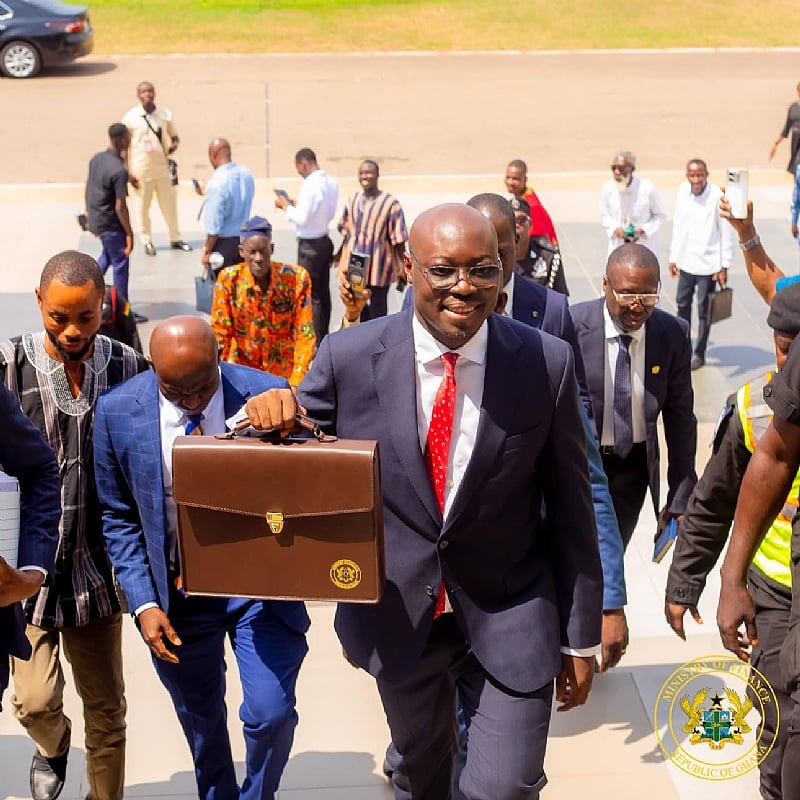
Government has reaffirmed its determination to halt the country’s half-decade decline in oil production, announcing more than US$3.5billion in new investment commitments as the national oil company (NOC) prepares to begin offshore drilling in late 2026.
Ghana’s crude output has fallen to its lowest level in six years, deepening concerns over sustainability of the upstream petroleum sector and its capacity to support critical development financing. Data from the Public Interest and Accountability Committee (PIAC) show that crude production dropped nearly 26 percent year-on-year in the first half of 2025, falling to 18.42 million barrels from 24.86 million barrels in the same period last year. The contraction, attributed to declining output from mature fields and the absence of new discoveries, represents the sixth consecutive year of production downturn.
The slump has severely constrained government revenue. PIAC data indicate that petroleum receipts plummeted by 56 percent, from US$840.77 million in first-half 2024 to US$370.34million for the same period of 2025.
Once hailed as one of Africa’s most promising new oil producers following the 2010 Jubilee discovery, the country has witnessed steady output declines since peaking at 71.44 million barrels in 2019.
Production slipped to 48.25 million barrels in 2024, a trend analysts attribute to reservoir depletion and diminishing investor enthusiasm for new upstream ventures. Despite repeated assurances from the Ministry of Energy, no new petroleum agreement has been signed since 2018 – making 2025 the sixth straight year without fresh exploration commitments.
Presenting the 2026 Budget Statement and Economic Policy, Finance Minister Dr. Cassiel Ato Forson said the administration has taken “decisive action” to reverse the decline, which stood at 71.4 million barrels in 2019, to an estimated 36 million barrels in 2025.
He added that ongoing investor-focused reforms have already unlocked more than\xa0\xa0\xa0\xa0\xa0\xa0\xa0\xa0\xa0\xa0 US$3.5billion in new commitments. These include a US$2billion framework agreement covering the Jubilee and Tweneboa Enyenra Ntomme (TEN) fields for drilling 20 new wells, as well as a US$1.5billion Memorandum of Intent with partners in the Offshore Cape Three Points (OCTP) project to expand operations. “This new investor-friendly environment has also attracted the interest of oil and gas majors such as Shell. Their entry is expected to bring new capital, technology and expertise to boost production,” he noted.
Dr. Forson further disclosed that the Ghana National Petroleum Corporation (GNPC) will begin drilling on the offshore Voltain Basin in October 2026, adding that prospects for expanding Ghana’s hydrocarbon output “look encouraging”.
He also revealed that a review of the upstream regulatory and fiscal framework is underway, aimed at making the country’s petroleum regime more competitive, transparent and stable.
Also significant in the 2026 budget, which is anchored on the theme ‘Resetting for Growth, Jobs and Economic Transformation’, was the request for approval for a Revised Investment Policy of the Ghana Petroleum Funds in line with Section 30 (1) (A) of the Petroleum Revenue Management Act (PRMA), 2011, Act 815. The Finance Minister said: “Since 2011, our Petroleum Funds have earned barely 1 percent annual returns – proof that parking them only in low-risk foreign securities limits value creation.”
To change this, he averred that government will designate additional qualifying investment instruments under the Petroleum Revenue Management Act.
“This will allow a portion of the Petroleum Funds to be invested in commercially viable domestic energy projects, such as gas and power infrastructure, that will drive industrialisation and jobs while improving long-term returns.
“This reform follows global best practice. Sovereign funds in Saudi Arabia, Nigeria and the UAE now channel savings into productive investments that power growth. Ghana must do the same,” he argued.
To this end, he told parliament that the new framework will maintain strict safeguards, transparency and performance audits to ensure every dollar earns real value.
“This is a mindset shift, from passive savings to productive investment; from idle reserves abroad to energy that powers Ghana’s future. Our oil wealth must not sit, it must build.”
But the proposal drew criticism from the Africa Sustainable Energy Centre (ASEC), which warned that allowing the GPFs to finance domestic commercial projects could weaken their stabilisation role.
“These funds are legally mandated as external stabilisers held in US dollars. Diverting them into domestic ventures exposes national wealth to localised commercial risk and undermines their ability to cushion the economy against external shocks,” an ASEC statement said.
The think-tank also cautioned that government’s plan to begin constructing a 1,200 MW state-owned thermal plant in 2026 risks repeating past policy errors. The energy sector accumulated more than US$1.4billion of legacy debt due partly to excess generation capacity, ASEC noted, adding that new large-scale plants would increase fixed capacity charges unless distribution losses and revenue-collection challenges were addressed first.
“This suggests a continued bias toward visible, state-led generation projects over the essential distribution sector reforms needed to stabilise the industry,” ASEC said.
ASEC further flagged what it called chronic underutilisation of the Annual Budget Funding Amount (ABFA), the portion of oil revenues allocated to development priorities. As of September 2025, only 0.43 percent of the US$290million available had been spent.
“The inability to deploy petroleum revenues, including for the GH¢30 billion Big Push Infrastructure Programme, constrains growth and undermines confidence in government’s ability to translate revenue into productive investment,” it said.
